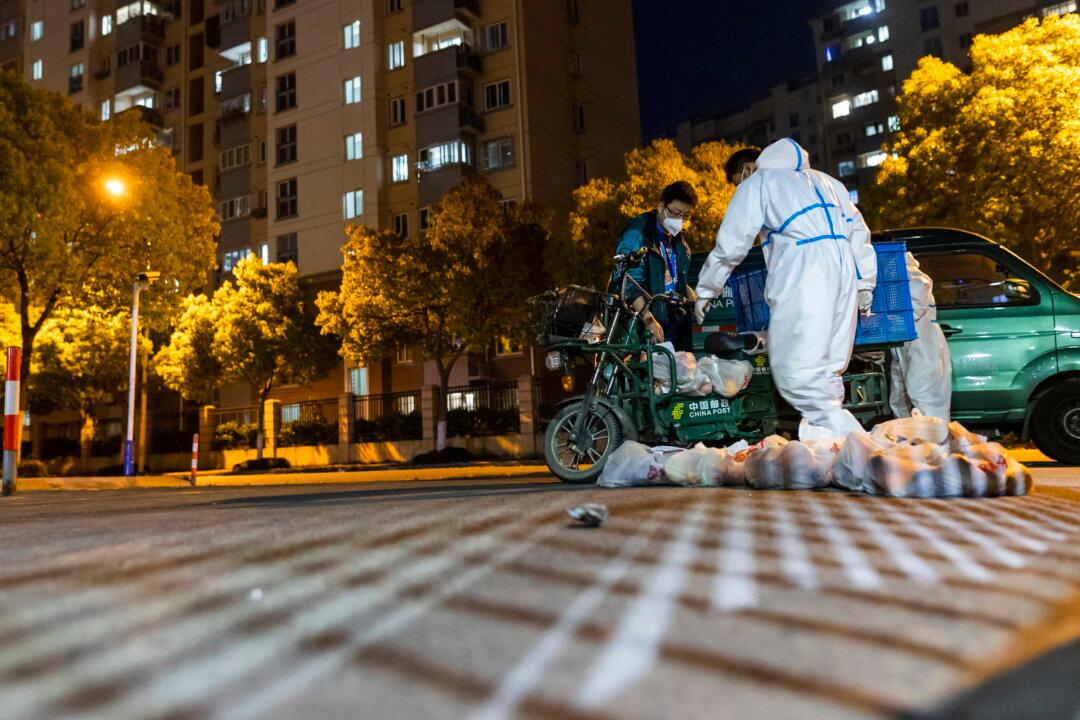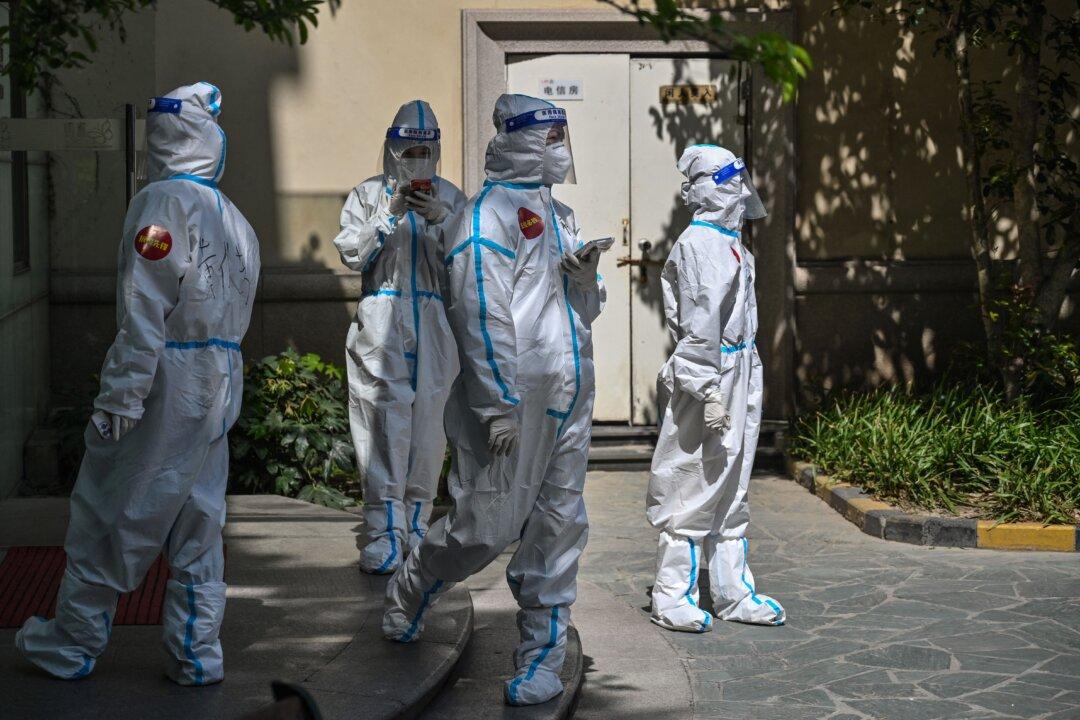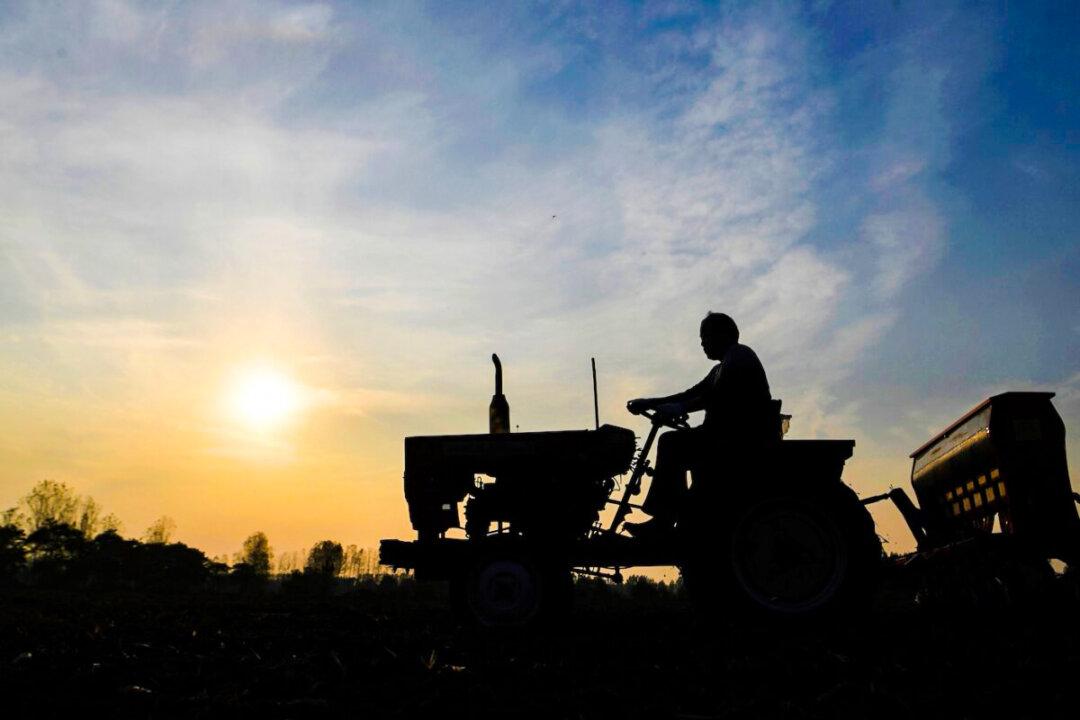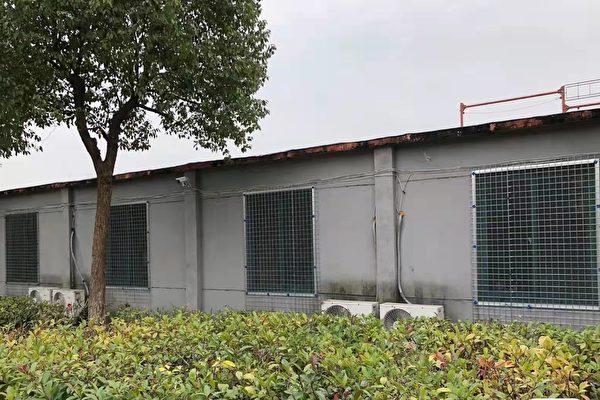
Deliverymen wearing protective suits with bags of food at the gate of a residential community in Shanghai, China, Monday, April 11, 2022. AP Photo
Shanghai residents are running short on provisions in the lockdown. Residents told the Chinese Epoch Times that they are facing a food crisis.
The
citywide lockdown started on April 1, after a partial lockdown began in the east side of the city on March 28.





